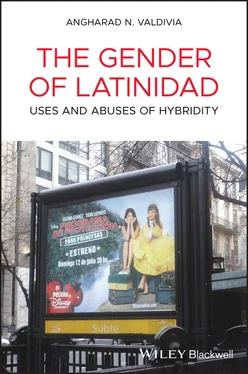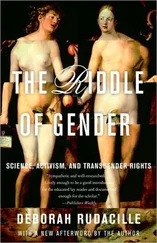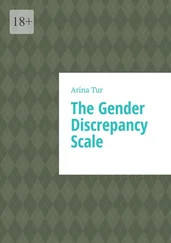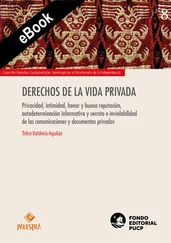I began to write this book over a decade ago. I proposed it to Jayne Fargnoli, then my editor at Wiley‐Blackwell, who sent it out for review and approved its publication. Meanwhile, a number of events delayed its progress, such as a 5‐year period serving as administrator of two academic units, the Institute of Communications Research and the Department of Media and Cinema Studies; editorship of a major journal, Communication Theory ; editorship of a seven‐volume encyclopedia, The International Encyclopedia of Media Studies ; injuries sustained after a major car accident; and continued attacks on my academic home, the Institute of Communications Research. The latter has been the most demoralizing and time‐consuming. Being able to finish this book feels like resilient victory over natural, bureaucratic, and neoliberal elements. Of course, I could not have accomplished any of it without a circle of support.
Jayne Fargnoli, my first editor, supported and nourished this project and two others. I miss her gentle yet firm guidance. Unwittingly, the book process charts the turbulent waters of academic publishing, with its rapid rate of editorial staff turnover. I finish the book with Mohan Jayachandran as my Wiley editor. I know that none of our work as scholars could be accomplished without the unsung labor of press editors.
As a member of the faculty at the Institute of Communications Research, I have had the fortune of working with world‐class research assistants and collaborating with faculty whose awesomeness truly amazes me. As I began the final push on this manuscript, Diana Leon‐Boys functioned as my uber‐research assistant, editor, and sounding board. I look forward to her scholarship and hope mine did not delay hers. Morten Kristensen Stinus, another world‐class scholar in the making, provided additional excellent editorial assistance. Neither he nor I could figure out what happened to Salma Hayek's CVS Nuance product line, though we tried. I finished the book while writing with the Friday Afternoon Writing Retreat Group, composed of Meghan Grosse, Diana Leon‐Boys, Andrea Ruehlicke, elizaBeth Simpson, and Alejandra Aguero. Scheduling this regular Friday writing retreat – which always ends with a champagne toast – is truly one of the most brilliant and effective ideas I have ever had! I hope the other writers experienced as much productivity within such an enjoyable setting and group as I did.
Two semester leaves allowed me time to develop Chapters 2and 3. In fall 2014, I spent a well‐earned administrative leave in Madrid, Spain. In fall 2016, I divided my half‐year sabbatical between Madrid and Solana Beach, California. I wish this for all of you: the opportunity to write in a wonderful global city and by the Pacific Ocean.
Some of the material in this book has been presented at conferences and talks, and some of it was published in earlier and less‐developed versions. Kelly Gates invited me to present an early version of the Girl Disney and Spitfire chapters at UCSD, which allowed me to sharpen my arguments. I first elaborated on utopia and Latinidad at a film conference at Indiana University organized by John Nieto‐Phillips. My first stab at a written version was previously published as “Implicit Utopias and Ambiguous Ethnics: Latinidad and the Representational Promised Land” in the Routledge Companion to Latina/o Media Studies . I especially want to thank Maria Elena Cepeda for her editing and help on that chapter, as well as for her unfailing valuation of my scholarship. I write with a little Maria Elena in my head, my Latina version of the Id. The Spitfire chapter received a well‐deserved tightening as a result of a presentation at the Hispanic/Latinx Research & Creativity Symposium at Texas Tech University. Thanks, Kent Wilkinson, for the opportunity to share my research with your faculty and students.
Academic waters are turbulent, and having genuine friendly colleagues makes the neoliberal and postracial attack on public education somewhat bearable. Isabel Molina‐Guzmán has been my colleague, friend, and fellow Critical Gender and Ethnic Studies traveling companion for decades. Despite an incredibly busy schedule, she took time to give me line‐by‐line advice on this manuscript. Without John Nerone's friendship and advice, as well as his revision and reorganization of the Utopia chapter, this book would have never been finished. Leslie Reagan always provides a listening ear and a way to navigate myself out of professional and intellectual turmoil. Her feminist historical research deserves every award it has earned, and many more that are yet to come. I draw on the wisdom, scholarship, and friendship of Sarah Projansky. I miss her daily since she left us for the University of Utah. We co‐administered and ethically tried to defend a unit under fire. Her research on Girls Studies remains a model for me, especially in the Disney chapter. Mentors and fellow scholars Cliff Christians, Paula Treichler, and Norman Denzin provide me with models of academic excellence and integrity. I remain thankful to have worked in their company and belonged to what was once a functional unit full of integrity and a democratic vision. I have experienced working in a temporary academic utopia – I know it's possible.
I belong to circles of friendship and scholarship that nourish me. I met Sharon Mazzarella when we were both young and overwhelmed first‐year doctoral students, and we’ve sustained our friendship and intellectual collaborations all of these years. Our parallel academic paths have now intersected through Girls Studies. Since the early days in Feminist Media Studies, Radha Hegde and I have connected on issues of gender and the global. I am an interloper and admirer of her sophisticated postcolonial analysis. I hired Safiya Noble to our faculty when I was head of department and realized that, though she was tenure‐tracked, she'd be lured away within the year – and I was right. Her approach and commitment to social change through her scholarship inspire me. I am thankful that Lori Lopez had the brilliant idea to create the Race and Media conference so that senior and junior scholars could form a network of connections to grow a field. I've attended two of its four meetings and have found them to be temporary utopic spaces where a small group of scholars functions in community to listen to, support, and extend our work. I am so honored to just sit, listen, and learn from Ralina Joseph, Leilani Nishime, Roopali Mukherjee, and the many other brilliant scholars who regularly attend that conference. Fellow Latina feminists Maria Elena Cepeda, Jessica Retis, and Viviana Rojas compose a growing area of studies. In Spain, I count on the scholarly spirit and friendship of Paloma Diaz‐Soloage and Amparo Porta Navarro, whose suggestion to lengthen the four chapters rather than composing a fifth, which I did not want to write, paved the way for the conclusion of this book.
My transnational feminist GNO has been life‐saving – the founders, Manisha Desai, Faranak Miraftab, Zsuzsa Gille, Lisa Rosenthal, and Angelina Cotler, carved out a space of sociality and survival in what has become an increasingly hostile institution. Without Faranak Miraftab's constant insistence that I begin writing my book about my personal history, I would not have pushed myself to finish this one. Newer members of the GNO, Dede Ruggles, Terri Barnes, Helga Varden, Shelley Weinberg, and Elena Delgado, expand our group's areas of expertise as their presence contributes solidarity and mirth. Helga took a bunch of us hiking in the sub‐Artic circle of Norway. Dede takes me through Spain with the sharp eye of a globally renown Islamic art expert. We all want Terri Barnes to run for president. The transnational feminist GNO does not forget that we are the winners of the second wave of US feminism: we got our degrees, were hired at Research 1 universities, were promoted, and if we haven’t been fulled yet, we certainly will be. We will continue to pay it forward. We will not buckle down. The academy needs us, is lucky to have us, and we will keep at it.
Читать дальше












